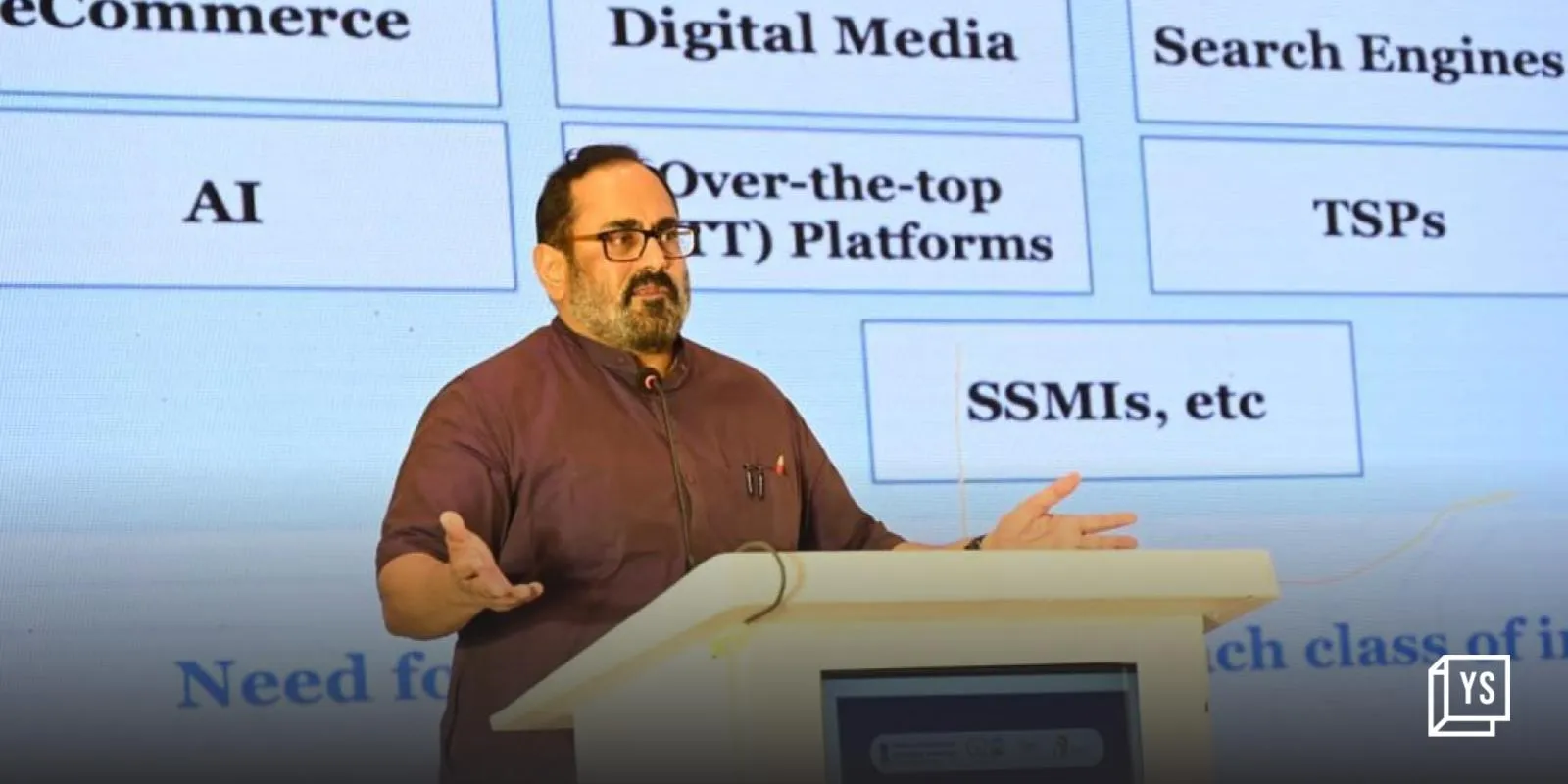Digital India Act seeks to clarify which platforms will receive safe harbour protections: Rajeev Chandrasekhar

The Minister of State for Electronics and Information Technology (Meity) Rajeev Chandrasekhar said in Thursday that the new Digital India Act will clearly define which platform will receive safe harbour protection, noting that the government is considering the removal of these protections for internet intermediaries.
“The logic of safe harbour is that an online platform has absolutely no power or control over content that a consumer creates on the platform,” he said at a public consultation meeting.
Chandrashekar explained that the concept of a safe harbour is maintain neutrality and get immunity from prosecution since the platform is not responsible.
The consultations are part of the Digital India Dialogues in line with Prime Minister Narendra Modi’s initiative of developing a consultative approach to law and policy making. Chandrasekhar held discussions with various stakeholders, including industry representatives, lawyers, intermediaries, consumer groups, among others about the principles on which the proposed Bill will be based.
Safe harbours are exemptions or legal immunity given to internet intermediaries under the IT Act, which the Digital India Act aims to replace with the idea of making the internet open, safe, trusted, and accountable.
“Our government respects anonymity from a privacy perspective but anonymity combined with platforms pretending to be dumb intermediaries leads to a situation where in the case of illegality and crime the cyberspace then morphs into a place where essentially illegalities cannot be deterred or prosecuted,” said Chandrasekhar.“So that is the current situation and that is certainly not a situation that we intend to leave unaddressed or unresolved or as a status quo,” he added.
The minister also found misinformation, disinformation, and deepfake as serious problems that need to be taken into account while designing these safe harbour protection guidelines.
The draft bill for the Digital India Act is expected to be ready by March 28 or 29, according to a report by Moneycontrol.
Two additional consultations will be conducted in the next two weeks, as per the minister, with at least one taking place in New Delhi. Once the draft bill is out, there will be a 90-day period for feedback and consultation from various parties. This process is expected to be completed by June 29, as per the report.
The new digital law should be evolvable and consistent with changing market trends, disruption in technologies, development in international jurisprudence and global standards for qualitative service or products delivery framework, he said.
“The law should not be prescriptive. The law should be principles-based, providing a framework with very sound principles that can then be used to develop rules in the future,” said Chandrasekhar while speaking about how the new act is being formulated.
Discretionary moderation of fake news by social media platforms should be critically examined and regulated under the constitutional rights of freedom of speech and expression, he said.
Going forward—as a first step—a comparative study of all relevant global laws pertaining to the internet and technology in other countries will be held.
This will be followed up with an extensive consultation process with media, experts and the public and will be held in two different phases after which the policy will come into being, the minister said.

Atul Tiwari is a seasoned journalist at Mumbai Times, specializing in city news, culture, and human-interest stories. With a knack for uncovering compelling narratives, Atul brings Mumbai’s vibrant spirit to life through his writing.





